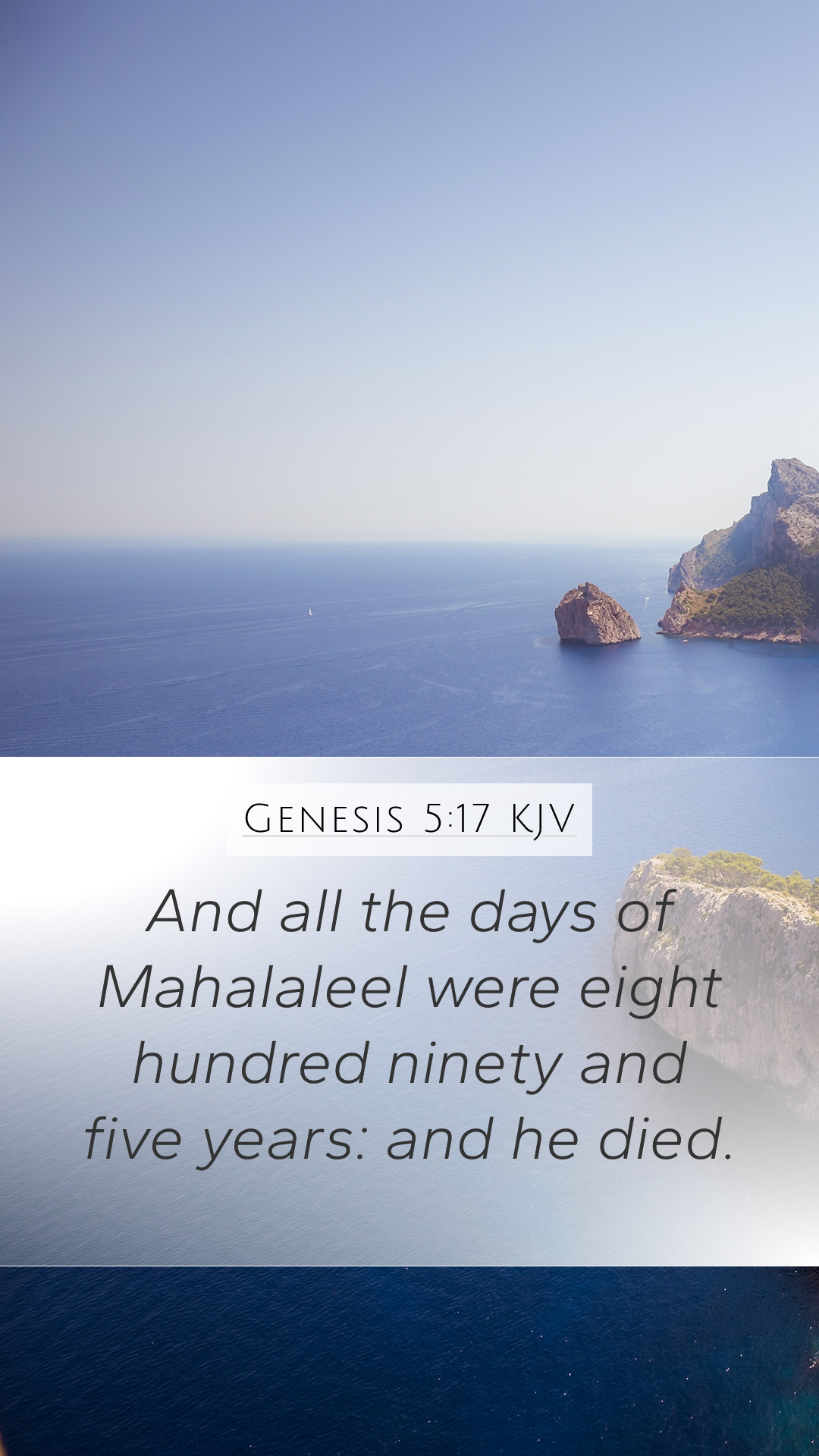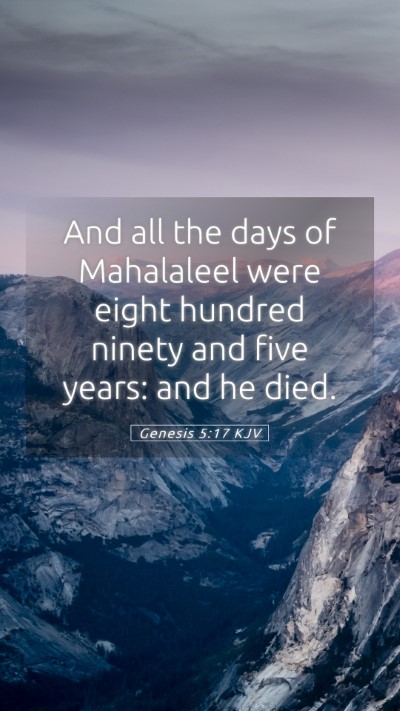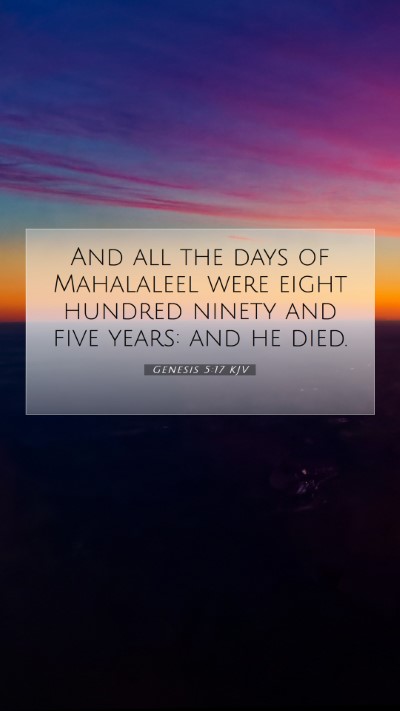Understanding Genesis 5:17
Genesis 5:17 states: "So all the days of Methuselah were nine hundred sixty and nine years, and he died." This verse succinctly encapsulates the life span of one of the Bible's most notable figures, Methuselah, whose age is famously the oldest recorded in the Scriptures. The significance of this verse can be unpacked through various biblical commentaries, providing a deeper understanding of its implications, historical context, and theological meanings.
Bible Verse Meaning
The physical lifespan of Methuselah, reaching 969 years, serves multiple interpretative purposes in Scripture.
Historical Context
In the genealogical record outlined in Genesis 5, Methuselah is not only remarkable for his longevity but also represents a link between the antediluvian (pre-flood) world and the post-deluge earth. His lengthy life can be seen as a testament to God's patience and the mercy offered to humanity before the judgment of the flood.
Theological Insights
- Symbol of Divine Mercy: Methuselah’s long life may symbolize God's extended mercy towards a sinful world. As noted by Matthew Henry, Methuselah's age reflects a period during which humanity was given ample opportunity to repent.
- Link to the Flood Narrative: Albert Barnes highlights that Methuselah’s death coincided with the onset of the flood, indicating the culmination of divine judgment that had long been foretold.
- Covenant Significance: Adam Clarke posits that Methuselah represents the faithful remnant, and through his lineage, including Noah, humanity is preserved, leading to future covenant promises from God.
Life Application
The mention of Methuselah's death serves as a sober reminder of mortality and the fleeting nature of life. It encourages believers to reflect on how they use their time on earth and to live in a manner that honors God's calling.
Bible Verse Interpretations
Scholars and theologians have interpreted Genesis 5:17 through various lenses. The focus on Methuselah’s death rather than his accomplishments invites readers to focus on the inevitable end that comes to all, prompting a sense of urgency in our spiritual lives.
Commentary Insights
- Matthew Henry: He suggests that the mention of age highlights God’s sovereign control over life and death, reminding us that every breath is a gift.
- Albert Barnes: He notes that Methuselah's long life without much Biblical narrative may hint at the faithfulness of quiet, godly living.
- Adam Clarke: Clarke emphasizes that Methuselah should encourage us to seek to be preserved in holiness, much like Noah did amidst the world's corruption.
Scripture Analysis
Engaging with Genesis 5:17 in scripture analysis reveals truths about not only Methuselah but the narrative surrounding the antediluvian world. It aligns with other passages that reflect themes of life's brevity and God’s sovereignty.
Cross References
- Genesis 6:3 - God's Spirit striving with man.
- 1 Peter 3:20 - The patience of God waited in the days of Noah.
- Hebrews 9:27 - It is appointed for man to die once.
Conclusion
In conclusion, Genesis 5:17, through the lens of various commentaries, opens a rich tapestry of meanings centered around divine mercy, the significance of longevity, and the inevitability of death. Understanding this verse requires reflection on how it fits within the broader biblical narrative and what it teaches about our lives today.
Bible Study Insights
For those involved in Bible study groups or online Bible study sessions, this verse can provide a focal point for discussions on mortality, the nature of God's mercy, and the historical context of biblical genealogy.
As one seeks to deepen their biblical study, using study resources such as commentary tools, individual Bible studies, and guided exploration of Scripture can greatly enhance understanding.
Final Thoughts
Ultimately, the inquiry into the meaning of Bible verses like Genesis 5:17 not only enhances our knowledge of Scripture but also enriches our spiritual lives as we apply these lessons to our daily existence.


